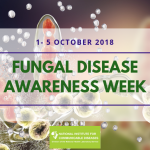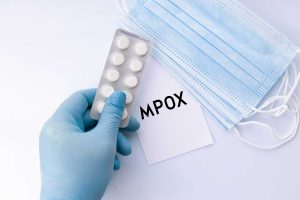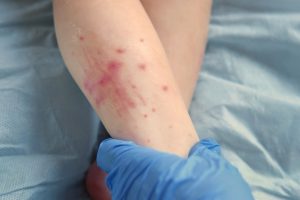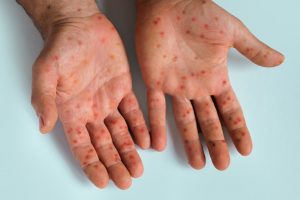What is the scope of the problem?
When most healthy people think of fungal diseases, they often think of oral or vaginal thrush, nappy rash, fungal nail infections, skin ringworm and athlete’s foot. Although these are very common, annoying and sometimes debilitating conditions, these can be treated. There is a group of people who are at risk for serious and often life-threatening fungal diseases. Globally, GAFFI has estimated that these fungal diseases are responsible for 1.5 to 2 million deaths every year (https://www.gaffi.org/why/burden-of-disease-maps/). This number includes nearly half of those dying with AIDS and many of those dying of sepsis. Antifungal resistance is now having a material impact on treatment outcomes – more people are dying because they are infected with fungi that are resistant to first-line or even second-line of antifungal treatment. Over the last 10 years, a multi-drug resistant fungus called Candida auris has spread across the world and caused large outbreaks in hospitals. In South Africa, we have diagnosed cases of Candida auris at almost 100 hospitals (https://wwwnc.cdc.gov/eid/article/24/11/18-0368_article).
Who is at risk for serious fungal diseases?
- People living with HIV/ AIDS
- People with COPD or asthma
- People with cancer
- People on dialysis for failing kidneys
- People who have had a bone marrow or organ transplant
- People who are critically ill after trauma or surgery and need intensive care
- Newborn babies who are born prematurely and need intensive care
Why is this epidemic silent?
- Life-threatening fungal diseases are usually diagnosed among sick people who are at risk, so healthy people in the community are not always aware of these infections, unless they or their close relatives become ill
- Some of these fungal diseases are not considered by doctors when they see ill patients. For example, invasive aspergillosis affects almost a fifth of people with severe influenza and is the most common missed infectious cause of death in intensive care
- Other fungal diseases are very difficult to diagnose either because laboratory tests are not available or because they can be mistaken for TB
- Healthcare-associated fungal infections (acquired in hospitals) are usually not reported to the public
- No fungal infections are reportable by law
What are government and researchers doing to prevent life-threatening fungal diseases in South Africa?
- The Department of Health provides guidance to healthcare workers on how to diagnose and treat people with serious fungal diseases
- The National Institute for Communicable Diseases (NICD) monitors certain serious fungal diseases, including cryptococcal meningitis and fungal infections that are diagnosed in hospitals and provides technical assistance for outbreaks
- Our South African Essential Medicines List includes important medicines needed for treatment of fungal infections in the community and hospital
- The National Health Laboratory Service (NHLS) automatically screens people who have a CD4 blood test with a low CD4 count for cryptococcal antigen (a part of the fungus that appears in the blood with disease). People who screen positive in the blood can then be offered immediate antifungal treatment, even if they are not ill.
- The NICD is trying to work out if the national cryptococcal antigen screen-and-treat programme has reduced deaths from cryptococcal meningitis
- Researchers are testing vaccines, new antifungal medicines or combinations of medicines in clinical trials
What can you do to prevent life-threatening fungal diseases?
- There are no vaccines in widespread use to prevent life-threatening fungal diseases.
- Most day-to-day exposures to fungi that can make you sick cannot be avoided because fungi are everywhere in the environment and some fungi are also found on your skin and in your gut as part of your healthy flora
- You can try to avoid high-risk exposures, such as cave exploration, if you know that you have a weakened immune system.
- Know your HIV status, start antiretroviral treatment as soon as possible and stay on your antiretroviral treatment for life
- Make sure that you have been screened for cryptococcal disease if you are living with HIV and have a low CD4 count
- Serious fungal diseases usually need long courses of antifungal treatment even after hospital. Stay on your antifungal treatment so that the disease does not relapse
- Advocate for the government to provide access to life-saving antifungal medicines such as flucytosine which is currently not available
- Report stock-outs of your antifungal medicines
- Advocate for hospitals to openly publish their rates of healthcare-associated infections so that you can make an informed decision about the best care for you and your family





